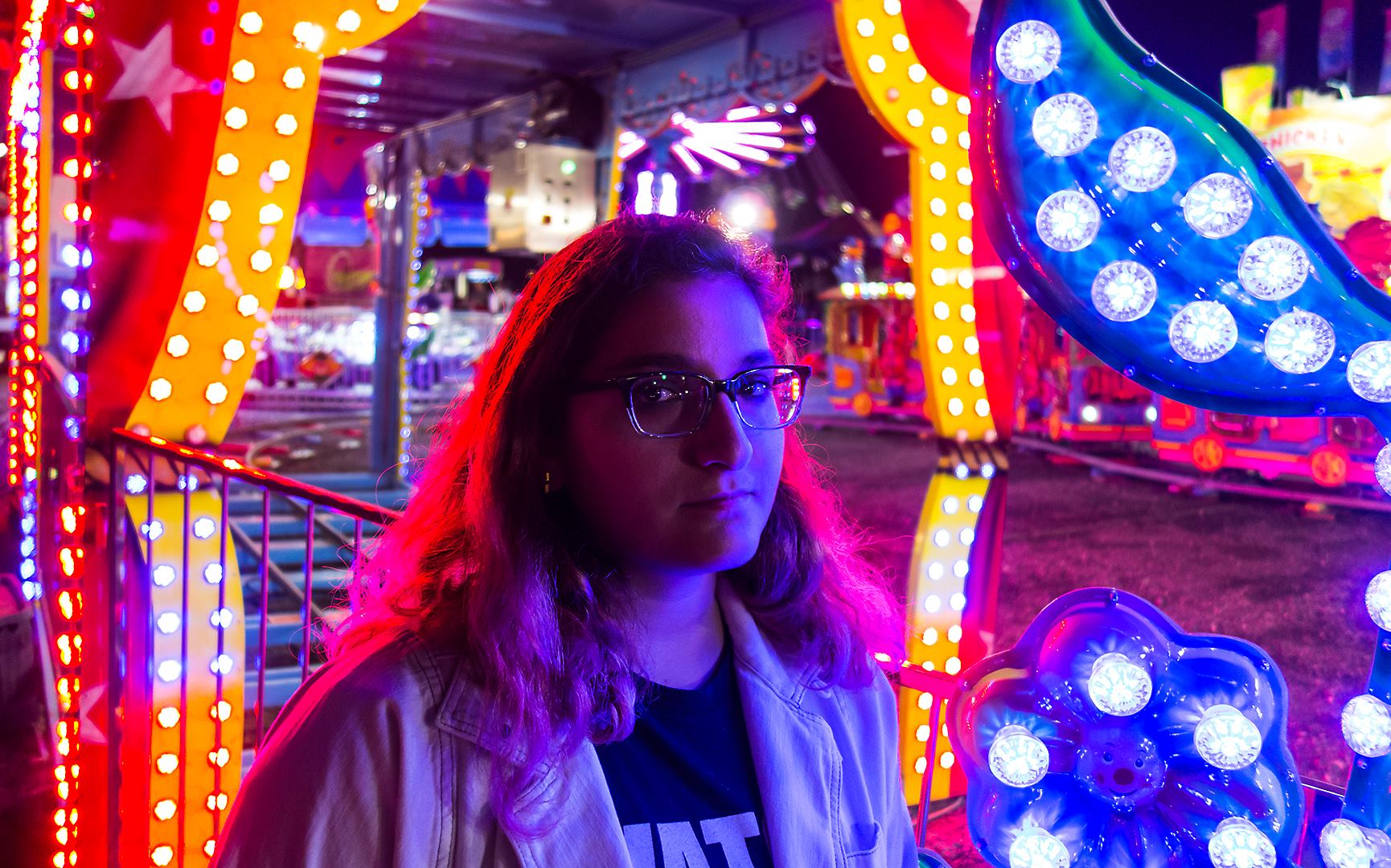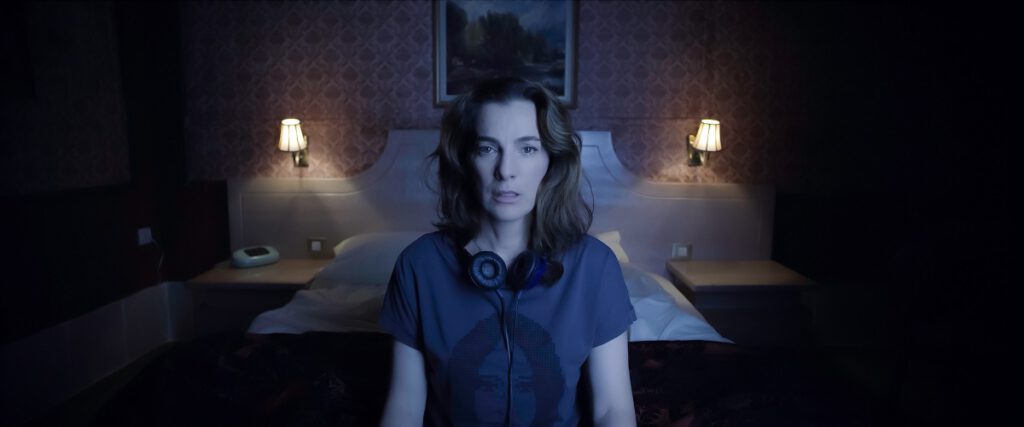For a show so consumed with the idea that boredom is dangerous, “Losing Alice” certainly does take its time. Director and writer Sigal Avin so belabors the point that an idle mind can stray into self-destruction that “Losing Alice” paradoxically has the same effect on its viewers. Many times during the eight episodes of “Losing Alice,” as the series recalls other, more visceral and engaging art-imitating-life works like “Black Swan,” “Nocturnal Animals,” and “Mulholland Drive,” you might wonder what “Losing Alice” is saying about the shackles of marriage, the expectation of professional success, and the fear of aging and irrelevance that is particularly unique to these characters or these situations. Unfortunately, the answer isn’t much.
“Losing Alice” follows 48-year-old Alice Ginor (Ayelet Zurer), a once-promising director whose seminal film “Three-Quarter Moon” was provocative, sexually charged, and singular. But that was years ago. Alice now is a mother of three daughters who every so often does commercial work; Alice’s look when one of her daughters recognizes a yogurt ad she directed is a grimace of professional frustration. While she mostly stays at home, bumping heads against her always-guilt-tripping mother-in-law Tami (Chelli Goldenberg), her actor husband David (Gal Toren) travels around on the world working on various films. Both of them have slid into the kind of mid-career mainstream that is creatively unrewarding: They’re doing jobs that pay for their very large house and the cost of raising their three kids rather than for artistic fulfillment, and the strain on their marriage is beginning to show.
An opportunity for something different appears after a chance encounter on a train, when Alice is recognized by a fan, 24-year-old Sophie (Lihi Kornowski), who is endlessly praising of “Three-Quarter Moon.” Alice keeps trying to end the conversation, but Sophie is passionate, exuberant, and tenacious, and she won’t stop talking. How much of “Three-Quarter Moon” was made up, Sophie wonders, and how much of it was real? “Everything begins with a kernel of truth” is the explanation given, and Sophie seems to begrudgingly accept it. And then Sophie reveals a surprising admission of her own: She’s written a script, she’s sent it to David, and he’s agreed to star in her movie. He said the script “blew his mind”—didn’t he tell Alice?

That meeting between Sophie and Alice sparks a relationship between the pair that will sprawl outward and affect nearly every facet of their lives: personally, professionally, romantically. Between Alice and David, whose already tenuous marriage is tested even more when the attractive Sophie starts appearing unexpectedly at their house and when Alice considers directing the film, which David had pinpointed as his own comeback. Why won’t Alice let him have this? Between Alice and Tami, who is convinced that Alice’s increasing interest in returning to movie directing will have a negative impact on her grandchildren; she would prefer Alice and David break up altogether. Between Alice and Sophie, as Alice becomes obsessed with the very question Sophie had asked her on the train: How much of Sophie’s film “Room 209” is pulled from real life? Sophie has a decades-older boyfriend, just like the script’s protagonist, Eleanor. Sophie’s Instagram showed that she had a best friend who mysteriously stopped appearing in posts, just like Eleanor’s split from her closest confidante in “Room 209.” There’s a lot of sexualization and taboo-breaking in “Room 209,” just like the buttons Sophie likes to push. Showing up to meet David braless. Slathering Alice’s daughter with makeup, cutting her bangs, and making her into a miniature Sophie lookalike—all without asking. Flirting with Sophie’s neighbor Tamir (Yossi Marshek), who previously had looked at Alice with the same playful longing that he now aims at Sophie. Is Sophie trying to copy Alice’s life? Take over her life? “Room 209” ends in bloodshed, with its myriad characters saddled with the effects of their own debased decisions. Is art imitating life here, or vice versa?
That instance of one character knowing something that the other doesn’t and using the reveal of that information to tweak, to poke, and to prod at the dynamic between them is the recurring methodology of “Losing Alice,” and it’s the only way these characters communicate. Is that a genre convention of the neo-noir-meets-thriller space that “Losing Alice” is assuming for itself? Sure. But it also makes for repetitious storytelling with increasingly diminishing returns. Everyone in “Losing Alice” is lying a little to themselves and a little to everyone else, too, but the script doesn’t take the time to analyze deeper motivations for all this betrayal. Alice is bored, David is bored, Tamir is bored—but that’s about all the depth they receive, and how Sophie moves them around like pieces on a chessboard without having any real backstory of her own is the most recurringly unfulfilling element of “Losing Alice.”
Sophie is clearly meant to be an homage to the classic femme fatale figure, and to Kornowski’s credit, she nails the character’s grand emotional swings, her pettiness and her recklessness, and how glowing the impact of her attention can be. It’s easy to understand why so many characters in “Losing Alice,” male and female, young and old, are swept up in her charms—at first. But as each episode reveals yet another terrible thing Sophie has done, or yet another lie she has told, or yet another life she might have destroyed, you wonder why so many would continue putting up with it. Sophie is only superficially imagined, the most detailed elements of her conception being her uninhibited physicality (an omnipresent smirk, an aversion to bras, a thong tan line), and Kornowski’s dynamic performance can’t alleviate that shallowness.

Avin is trying to send a message here about what people will give up for continued fame, and she wants us to understand how Alice’s morality takes a hit from her continued affiliation with Sophie, and how her acceptance of Sophie’s wildness sparks her own spontaneity. A speech in which Alice describes “being asleep” before meeting Sophie feeds into the film’s ideas on dream worlds and dual identities, while the film’s attempts at inexplicable strangeness are somewhat Lynchian: a woman spotted across a balcony, frantically and unceasingly shaking her head; a skulking figure who appears out of the darkness of a parking garage to spit on Alice’s face. Those moments would resonate more, though, if Zurer’s Alice were anything other than inscrutable or agitated. Alice is written neither with a baseline personality from which we understand her to be deviating, nor with an indication of what all this complicity is costing her. A scene in finale episode “The End” in which we finally see some of the toll of “Room 209” on Alice is handled well by Zurer, who drops the protective wall surrounding the character and bares her most fragile parts. But in the preceding episodes, certain moments meant to celebrate Alice (a slow-motion tracking shot of her leading her all-male crew to the production office, set to Run the Jewels’ “Nobody Speak”) or interrogate her (her lack of reaction when she learns about an alleged sexual assault committed by one of the film’s crew members) seem unintentionally subdued.
The greatest misstep of “Losing Alice” is its fear of letting this story unfurl linearly, and its reliance on disturbing or confusing moments (the premiere opens with a suicide) that are sometimes flashbacks, sometimes flashforwards, sometimes scenes from “Room 209,” and sometimes Alice’s fantasies or imaginings. How these moments serve as echoes, overlaps, and contrasts to demonstrate what is fact vs. what is fiction is only intermittently satisfying. A lengthy, one-take sex scene in seventh episode “The Scene” is technically well-done and admittedly titillating, but “Losing Alice” needed similar moments of emotional intensity earlier in the series, too. At a certain point, “Losing Alice” tips over into a puzzle to be solved rather than narrative to be experienced, and that choice does the series a disservice. “I’m interested in shocking,” Sophie spits to Alice during one of their fights, but “Losing Alice” should have strived for more than just cheap thrills.
Entire series screened for review.












